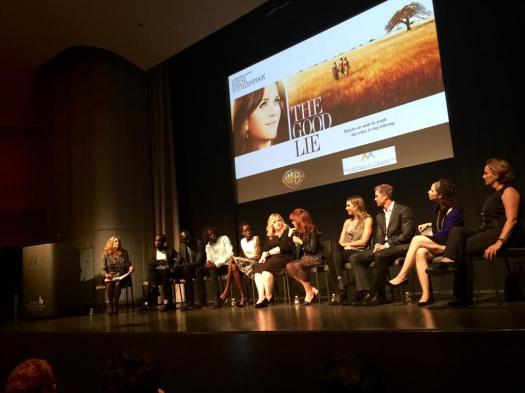
Editor's note: This guest post originally appeared on the i-ACT blog and was written by Katie-Jay Scott Stauring, i-ACT Director of Operations and Community Involvement.
Gabriel and I had the honor of attending a special premier of The Good Lie last night at the Museum of Tolerance in Los Angeles. I had seen the trailer, but I was worried it was going to minimize the true story of the Lost Boys of Sudan and not reflect the experiences of resettled refugees in America. I was wrong.
The film did not leave out the horrors that thousands of Sudanese children, from Sudan and South Sudan alike have experienced. They did not leave out the hundreds of miles walked, the death of loved ones, or the horrific experience of a child being taken as a soldier or slave. It also shed true light on the trauma that the Lost Boys continue to experience as adults resettled in America.
The children used in the film are children of South Sudanese who are living in the United States. The film used Sudanese actors like Emmanuel Jal and Ger Duany who have experienced being a child of war first hand. I cried through most of the movie. It was not only very well made, but it also hurt deep in my heart to know that as the crimes unfolded on screen, they were also continuing to unfold in Sudan. The story of destruction and the long-term refugee-camp life are ones that our Darfuri friends are all but too familiar with.
After the film there was a question and answer session with the actors, producers and the screenwriter. Towards the end, Margaret Nagle, the screenwriter, assured the audience that this was more than a film, that it is a movement that will change things going forward. I truly hope it not only works to make a difference in South Sudan now, which has fallen into more war, but also works to address unresolved trauma of Southern Sudanese and their families living in the United States. As we know, intergenerational trauma has great effect on the lives of the children of survivors of genocide and war.
The night ended with Emmanuel Jal leading the audience in a pledge for peace. A few hundred of us stood, wrapped our thumbs together and wiggled our fingers, “We will work for the change we want to see.”
Learn more about the film and where you can catch it here.
Photo credit: i-ACT

